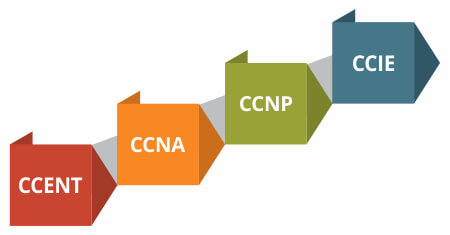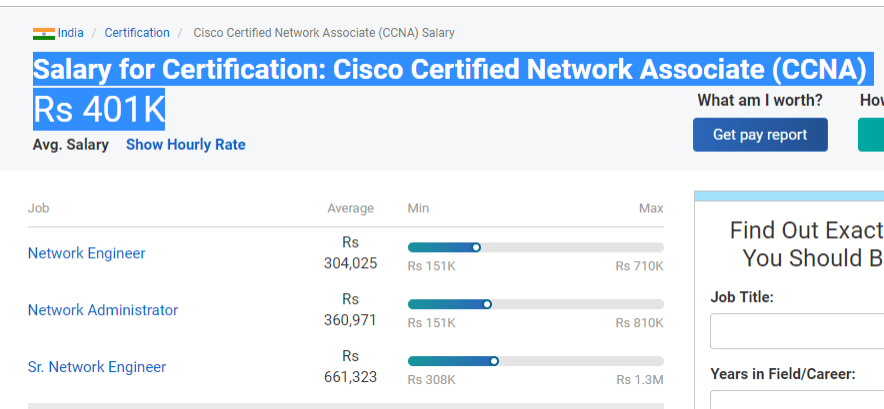

Many a time I have seen that Engineering who have completed B.E. in Electronics in Telecommunication join the course of CCNA. Sometimes the decision is well thought of but many times you are just following someone. In either case, the decision to join a CCNA training course would turn out to be a wise decision provided further steps are taken in the right direction.
What CCNA Training course contains?
First understand what the CCNA training course and CCNA certification cover installation, configuration, operations and troubleshooting of a medium-sized network. It covers networking fundamentals, network access, routing, switching, IP connectivity, WANs, etc. These skills are very important for any network administrator role.
Job Roles after CCNA training course
In CCNA training course one will master various aspects of networks, switching, and routing. With these skills, there are many job roles which can become available to you. Here are some of the names
| Job Roles |
| Network Support Engineer |
| Network and System administrator |
| Network Engineer |
| Network Security Engineer |
One can start with a Network support engineer and with experience can grow further. To become a Network Security Engineer, you need to learn additional skills in routing, switching and information security.
When fresher, try multiskilling to reduce the risk
When you are a fresher, you may not know the pros and cons of choosing the technology in the context of a good career. With experience you will start understanding which job role best suits you and based on it you can adopt your pursuit of advanced skill. However, as a fresher, after CCNA try to learn some skills in the domain of system administration like Windows and/or Linux. Because an enterprise network in a company consists of many other components like desktops, smartphones, servers, storage in addition to network, routers, and switches. Overall knowledge of all these would serve as a good foundation for further career growth and would also reduce the risk.
Growing in career after CCNA
CCNA and assimilating other system administration related technologies is the first step. Next level professional certification CCNP. Further depending upon the requirement, you can choose different tracks which include Cloud, Collaboration, Cyber Ops, Data Center, Industrial, Routing and Switching, Security, Service Provider, and Wireless.

CISCO is a provider for specialized services in networking products and services. There are many global certifications one can acquire and grow to become a specialist in CISCO technologies. One can start with entry-level program which starts with Cisco Certified Entry Networking Technician (CCENT), then CISCO Certified Network Associate (CCNA) and Cisco Certified Network Professional (CCNP) and move up to Cisco Certified Internetwork Expert (CCIE).
Nowadays there is a convergence of Telecom and Information Technology on usage of network technologies. This would open large number of job openings for CISCO technology trained resources
Salaries for CCNA skilled professional
Salary for CCNA certified associate is Rs 401K according to Payscale. Here are more details:

If you are interested in doing career in networking domain, pursuing CCNA training course is one of the first critical steps.
